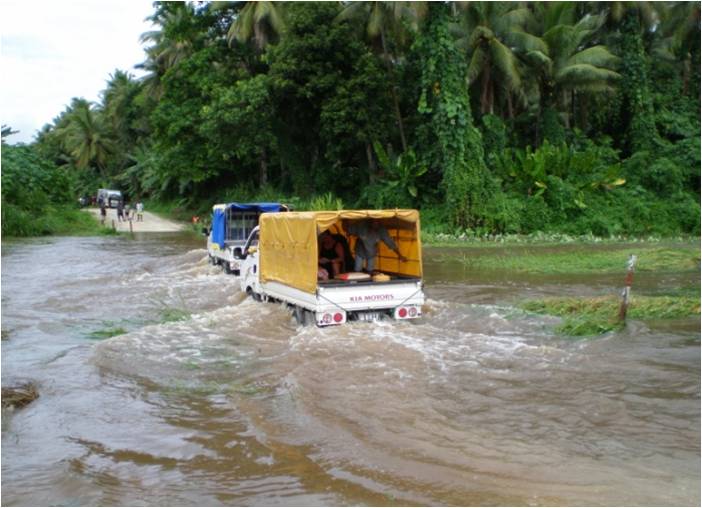
Epi Island in Vanuatu will be relocating parts of their road this year to avoid the impacts of climate change under the Pacific Adaptation to Climate Change project.
The designs of the new roads are being finalised in order to start construction in the next three months.
"Detailed surveys of segments of the road on Epi that need to be relocated have also been done and the relevant designs have incorporated the impacts of climate change," said Brian Philips, the PACC National Coordinator of Vanuatu.
"This will be finalised very shortly and we can then start physical works on the ground."
Approximately 40% of the current roads and Lamen Bay airstrip on Epi are located next to the high water mark. This makes the roads vulnerable to coastal erosion, and leads to them becoming dangerous and inaccessible. Studies by the Vanuatu Meteorological Service and the science component of the Australian International Climate Change Initiative (ICCAI) show that sea levels in Vanuatu have risen by at least 11cm since 1993, which is over twice the global average rate of sea level rise.
Epi Island is just one of 83 islands that make up Vanuatu. It is also the site of the Pacific Adaptation to Climate Change (PACC) Project that spans 14 different Pacific island countries. The PACC project supports on the ground projects to help communities adapt to climate change in one of three key areas; food production and food security, water resource management, and coastal zone management.
This project will relocate the current roads to safer ground and include drainage systems to allow for run-off during heavy rainfall. The new design will also include sedimentation ponds which will limit sedimentation from heavy rain reaching the island's coral reef. The main focus for this climate change adaptation project is to take into account all possible climate change impacts including changes in rainfall patterns and sea level rise.
"The Public Works engineers who have a lot of expertise and experience with physical works on the ground with roads have projected that we should be able to complete most of the physical works probably by the beginning of October this year."
The Secretariat of the Pacific Regional Environment Programme (SPREP) is the implementing partner of the PACC Project which is funded by the Global Environment Facility (GEF) and the Australian Government (AusAID) and the United Nations Development Programme (UNDP) is the implementing agency. Capacity support on communications is also provided by the United Nations Institute for Training and Research in Climate Change Capacity Development (UNITAR C3D+).